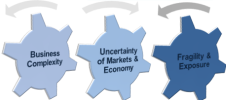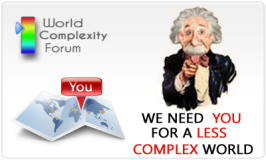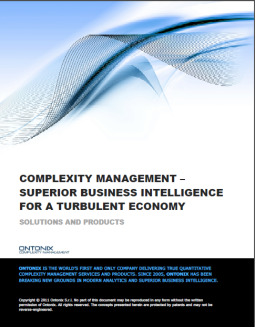Complexity: The power to save lives…or to cost them.
Tuesday, 28 December, 2010 Leave a comment

 Healthcare is already something that Ontonix are involved in and have specific products for (click on OntoMed logo).
Healthcare is already something that Ontonix are involved in and have specific products for (click on OntoMed logo).
Very recently I had the privilege of meeting one of Dr Atul Gawande’s colleagues, a Research Fellow, who had been involved in the WHO research referred to in Dr Gawande’s book and that caused such a stir in 2009.
This isn’t his first book . In his book Complications, he is refreshingly forthright about the nature of the work he undertakes. Gawande describes the tasks of the men and women of the medical trade in a way that many may find unsettling: "We drug people, put needles and tubes into them, manipulate their chemistry, biology, and physics, lay them unconscious and open their bodies up to the world." Even more revealing is the book is divided into sections titled "Fallibility," "Mystery," and "Uncertainty."
The topics Gawande takes on include the practical necessity of having surgical students train on live patients, the confusing psychology of bodily illness, the question of why doctors make mistakes, the repercussions when they descend into periods of incompetence (they often keep practicing), and the peculiarities of relying on intuition in situations of life and death.
Now I don’t profess to be a medical person, but, like anyone else, realise that I may need to rely upon their professional expertise at some point in the future. I find it refreshing that influential people within medicine recognise that COMPLEXITY and UNCERTAINTY can be simplified by asking the right questions in advance. And that, as a result, better outcomes can be achieved.
Maybe, eventually, other professionals, C-level Executives and those that carry the associated financial risks will realise that there are some significant lessons to be learnt from questioning current practises and conventional wisdom.
There is no excuse for "failing to prepare…" and every reason to ask different and better questions.
"Avoidable failures are common and persistent, not to mention demoralizing and frustrating, across many fields — from medicine to finance, business to government," he writes.
"And the reason is increasingly evident: the volume and complexity of what we know has exceeded our individual ability to deliver its benefits correctly, safely, or reliably. Knowledge has both saved and burdened us."












